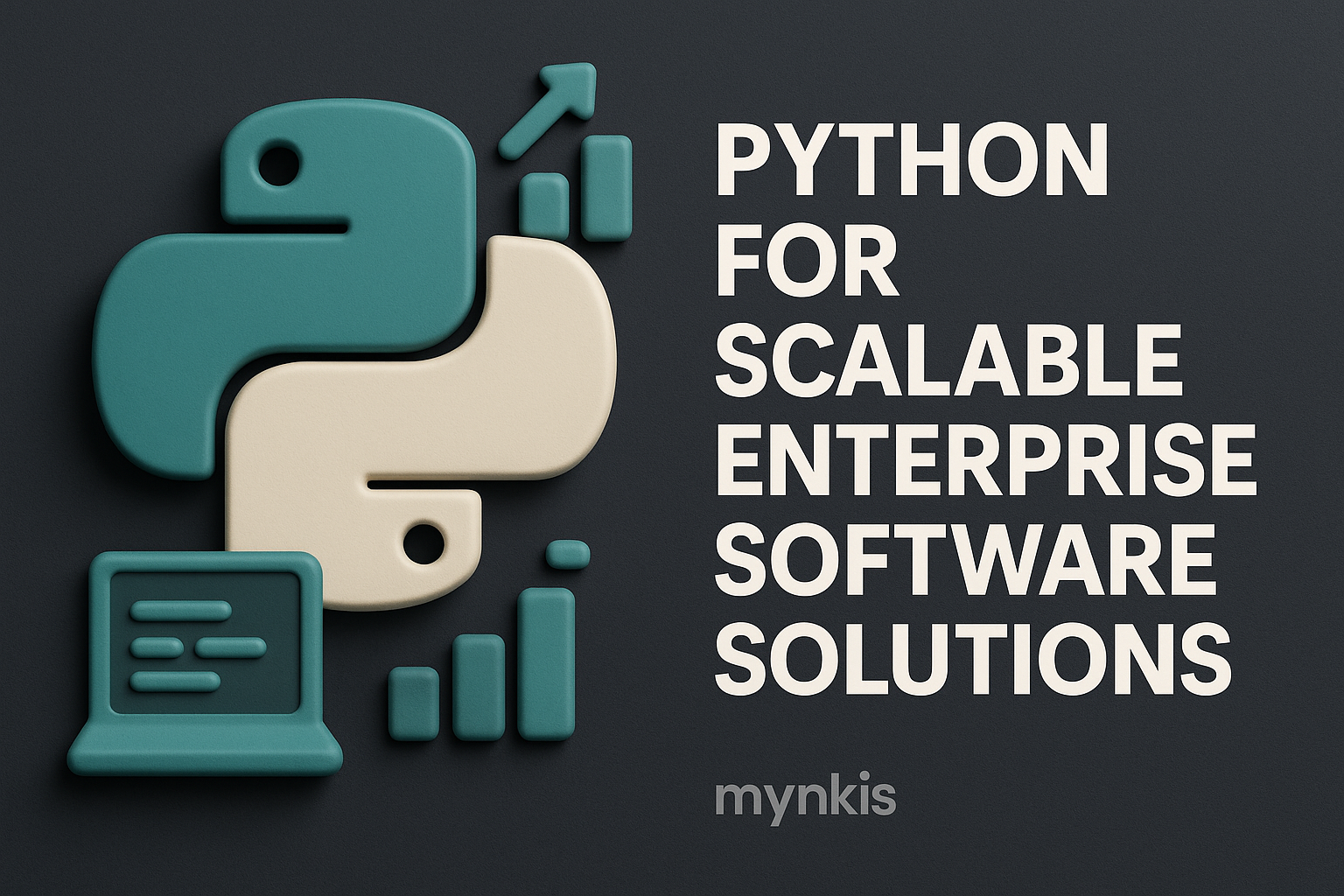Schedule a Demo
When I talk to CTOs and technology decision-makers about building their next enterprise software system, one language keeps coming up: Python. It's not just the cool factor or the buzz around tech hubs in California; Python truly delivers where it counts for enterprises aiming to scale and streamline their operations.
Python's appeal in the enterprise sector is multifaceted. Firstly, its simplicity and readability make it an excellent choice for large teams with developers of varying skill levels. In my discussions with operations managers, I've observed that when a system is easy to read and modify, it drastically reduces the time and cost associated with onboarding new developers and maintaining the codebase over time.
Another significant advantage of Python is its ecosystem. I've worked with businesses that leverage libraries like NumPy for numerical computation, Pandas for data manipulation, and Django or Flask for web development, making it a versatile choice across different enterprise needs.
This ecosystem enables the rapid development of custom software solutions. For a healthcare firm I advised, using Python's frameworks allowed them to quickly deploy a secure patient record system that complied with HIPAA regulations. This adaptability is crucial when customizing solutions for specific industries, aligning well with the needs of enterprises looking for tailor-made applications.
Data has become the lifeblood of enterprise operations, with many organizations needing robust solutions for data analysis, machine learning, and AI. Python shines brightly in this area, supporting an extensive range of libraries and tools from scikit-learn for machine learning to TensorFlow for deep learning.
An example that comes to mind is a retail client who used Python to analyze customer behavior patterns through machine learning models. The insights gained were directly translated into marketing strategies that boosted their revenue significantly. Such cases illustrate how Python aids in extracting actionable insights from vast amounts of data.
One of the challenges enterprises often face is integrating new systems with their existing infrastructure. Python's ability to seamlessly integrate with other languages and systems like Java, .NET, and even legacy databases positions it as a formidable tool in enterprise settings.
Take the case of a financial services company that needed to enhance their existing system with new features. By using Python as a bridge language, they integrated modern functionalities without overhauling their current setup, proving its scalability and versatility.
Automating and optimizing business processes can significantly impact efficiency and profitability. Python's capabilities in automation, scripting, and workflow orchestration are unmatched, making it an ideal choice for enterprises looking to revamp their operations.
In a logistics firm I consulted with, Python scripts were utilized to automate the sorting and routing of shipments. The improvements were immediate; not only did this streamline their operations, but it also allowed them to scale their processing capacity without linear increases in workforce or infrastructure costs.
When it comes to enterprise-level software, reliability is non-negotiable. Python's mature status in the software world, coupled with a vast and supportive community, helps enterprises trust that solutions developed in Python will be robust and supported long-term.
Enterprises that I've worked with often cite the active forums, extensive documentation, and the frequent updates to Python as critical factors that ensure their software stacks remain secure and cutting-edge. This community-driven aspect ensures continuous innovation, which is crucial for enterprises that cannot afford stagnation.
Looking ahead, Python is being integrated into cloud computing, serverless architectures, and emerging tech trends like edge computing. Enterprises that adopt Python early are well-positioned to leverage these advancements.
In my conversations with technology leaders at various companies, the consensus is clear: investing in Python not only solves current needs but also future-proofs their technology stack against the rapid changes in the industry landscape.
While the benefits of Python for enterprise development are compelling, it's important to consider a few practical aspects before diving in. Assessing the existing technical debt and infrastructure compatibility with Python is crucial. Enterprises might face learning curves, but with strategic training programs and perhaps consulting with experts in Python application development, these hurdles can be overcome effectively.
Moreover, it's critical to tailor the use of Python to the specific needs of the business. Not every enterprise will need its full range of capabilities; thus, understanding which aspects of Python will serve the company's goals best is essential for a successful integration.
As enterprises navigate the increasingly complex landscape of technology, Python emerges as a clear leader in enabling scalable, efficient, and innovative software solutions. Its breadth of application, from web development and data analytics to automation and AI, positions it as a versatile tool suited for a diverse range of enterprise challenges.
Whether you're at the helm of a small startup looking to grow or steering the IT strategy of a multinational corporation, the potential of Python to transform your business processes and achieve your technological aspirations is undeniable. Considering Python's robust ecosystem, its role in data management and analytics, and its scalability and integration capabilities, it represents a strategic choice for enterprises serious about future-proofing their operations in an ever-evolving digital world.
